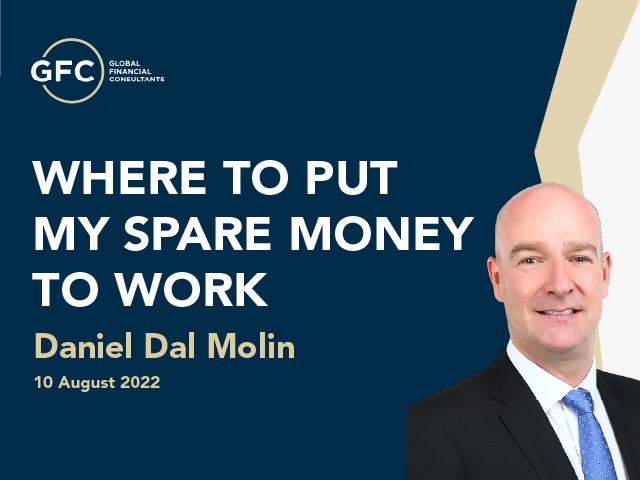
Where to Put My Spare Money to Work
Tiffany Toh
[vc_row css_animation=”” row_type=”row” use_row_as_full_screen_section=”no” type=”full_width” angled_section=”no” text_align=”left” background_image_as_pattern=”without_pattern”][vc_column][vc_column_text]In the last article I wrote, I mentioned that in the past when inflation was last at these levels, you could always find a quasi-risk-free fixed deposit rate at a bank that was generally higher than the inflation rate. So, your money earns a little more than the inflation rate of the time.
Today, the fixed deposits and inflation markets seem to be moving in opposite directions. This tells us, the average investor, that we need to seek a little more risk for our savings to stay ahead of ongoing inflation.
Generally, it has been a very mixed market this year with both equities and bonds falling at the same time. Usually, this relationship is inverse where bonds usually rise when equities drop with the anticipation that interest rates will fall and the value of the bonds will increase.
For the first time in over 30 years, we have seen both bond and equity prices drop at the same time. Usually when equity prices drop, bond prices increase since the market expects the economy to slow down. However, bond prices have dropped in anticipation of higher interest rates to stabilise and rein in inflation.
Main drivers of uncertainty
There is never a perfect market to invest in but investors need to be aware of the main drivers of this year’s market turbulence. At present, there are two alongside the inflation story.
The first issue is the real estate market in China. At present, we are insulated from most of this pain as China has a closed capital account and most real estate borrowings are local and therefore not affecting international investors significantly at the moment.
The second issue on the horizon is the upcoming winter in Europe and the state of energy available for this period. If gas supplies are not able to maintain demand, there are risks the European Economy will suffer.
Things could change and these two issues may come to the forefront affecting global growth. The IMF has recently reduced its global growth forecasts as recently as 26th of July due to these issues and others.
But on the positive side of the ledger, we have incrementally increased worker participation and employment numbers in developed countries. Oil and energy prices have come off their peak and some areas of food inflation have started to subside.
Yes, many investors are carrying a paper loss on their share portfolios, but if you had mentioned a year ago that you could buy into the market with a 20% discount if you waited a year, many people would have been into that trade. We don’t know what is coming but apart from all the gloomy media reporting, many positive economic indicators may have put a bottom under prices.
Looking ahead
Going forward, an investor should look at investing in a broad range of share and bond portfolios in order to gain some traction when the markets rally as they are now. There are still no attractive low risk investments available that can track ahead of the inflation rate so the average investor needs to step carefully into the area of the market that has more risk and better gains.
Yes, it is a little bumpy out there on the markets, and unless you have the time to spend a good number of hours doing your homework, maybe it is time to speak to a financial advisor that can help build your portfolio to weather the storm and minimise the risk.
Contact me, Daniel Dal Molin, for your complimentary obligation-free consultation.
Email: daniel.dalmolin@admin.gfcadvice.com
Number: +65 9058 9568
About Daniel Dal Molin
Daniel has spent the last 30 years as an expatriate working in the Asia Pacific region. Over the years, he has given a lot of advice to fellow expats about investing and tax. A few years ago, he decided to leave his corporate role of financing the supply chain for a large intermediary and seek a licence to become a financial adviser. He has been a client of Global Financial Consultants for 10 years and a Licensed Financial Adviser with GFC for almost 2 years.[/vc_column_text][/vc_column][/vc_row]